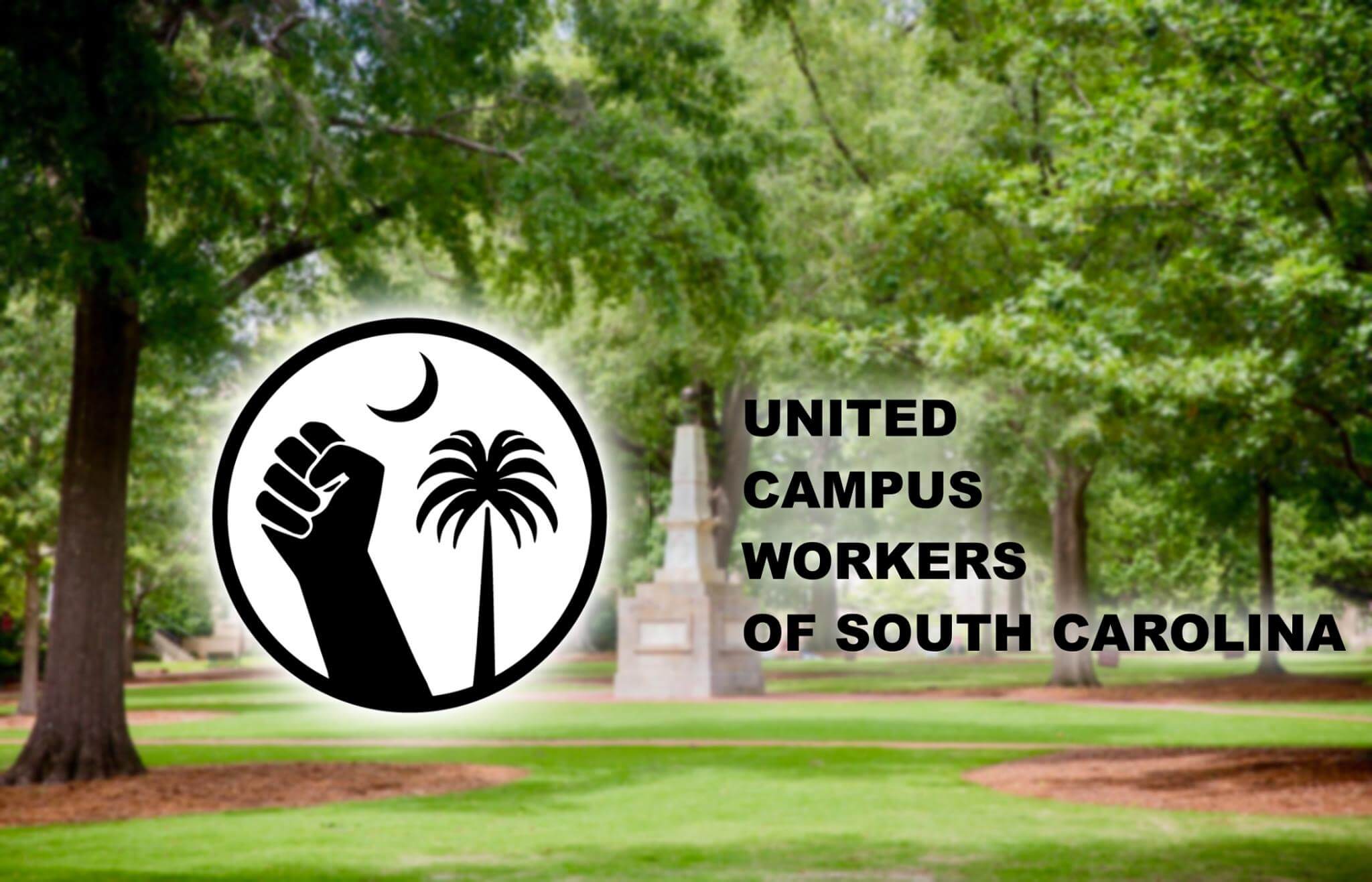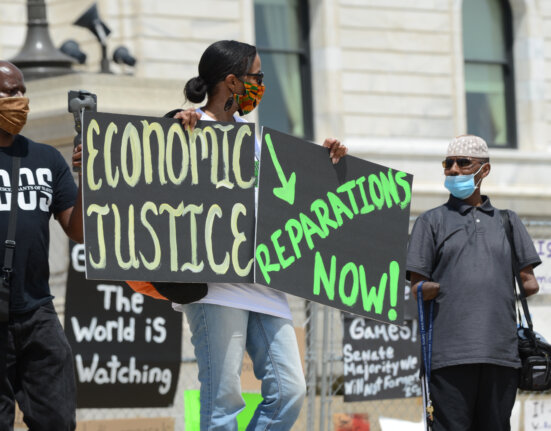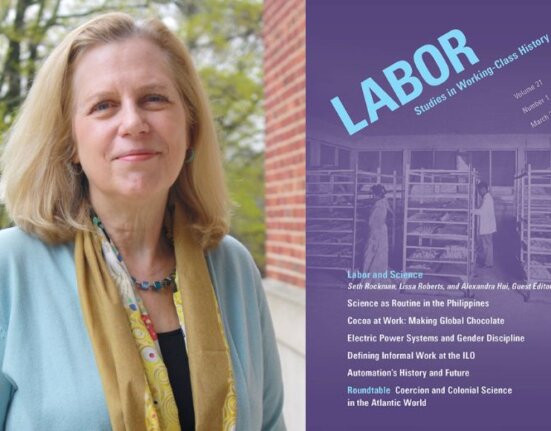In the spring of 2019, workers at the University of South Carolina (UofSC) organized after a controversial university Presidential search highlighted campus-wide dissatisfaction with the Board of Trustees (BoT). This cultivated a feeling among workers that we lacked a voice in campus affairs. The Union, officially called the United Campus Workers – Communications Workers of America, Local 3765, became officially chartered in June 2020 with 50 active, dues-paying members.
To support their campaign for a safe workplace, sign this petition.
Why We Organized
UofSC began its search for a new president in the fall of 2018. Out of a diverse pool of more than 80 candidates, the search committee narrowed their semi-finalists list to 11 white men, and chose their four final candidates, three of whom were white men. In response, more than 30 student organizations and 125 faculty members signed a letter criticizing the process of the all-male finalist pool. Protestors also expressed their concern over the lack of diversity of both the Presidential Search Committee and the BoT, both of which were overwhelmingly composed of white men.
From April 22 to 25, 2019, the four finalists spoke to students, faculty, staff, and administration. A favorite of the BoT was Lt. Gen. Robert L. Caslen Jr., the former superintendent of the U.S. Military Academy at West Point. During Caslen’s forum, he caused an uproar, specifically when he suggested a culture of binge drinking was a main component of sexual assault and when he suggested he had increased diversity at West Point without lowering their standards. On April 26, 2019, the BoT was set to announce Caslen as the new president, sparking students to protest, citing Caslen’s lack of experience running an R1 institution and because he did not hold an advanced academic degree. In response, the BoT selected an interim president and announced they would hold a new search in the fall.
However, on July 9, 2019, when the majority of faculty and students were away from Columbia, Republican Governor Henry McMaster called for the BoT to hold a vote on July 12, 2019, to confirm Caslen as president. While McMaster is an ex-officio chairman of the BoT, in using his position as a governor to force the board into a vote, the controversy threatened the University’s accreditation status.
Outrage once again ensued from students, faculty, staff, alumni, Democratic state lawmakers, the press, and community members. In a poll taken at the time, 82% of students and faculty opposed Calsen’s appointment.[1] Despite the widespread protests, on July 19, 2020, after two hours behind closed doors, the BoT voted 11-8 in favor of Caslen to become UofSC’s new President. The Presidential search silenced and ignored student, faculty, staff, donor, and community voices, thus emphasizing the undemocratic process of establishing a new administration at a public university.
Who We Are

In the early 2000s, Tennessee established the United Campus Workers (UCW) to organize non-majority unions in right-to-work states. UCW has a proven track record across the South, including unionizing in Georgia, Kentucky, and Mississippi, and currently has over 2,000 members at 20 public universities and colleges.[2]
UCW SC members include part-time and full-time staff, faculty, and student workers from any of the higher education campuses or offices across the University of South Carolina Campus System. As stated in our bylaws, “Our mission is to advocate for the interests and well-being of all University workers, build and sustain social and economic justice in our workplace and in our communities, and resist all forms of discrimination on the basis of race, ethnicity, nationality, gender, class, sexuality, religion, and ability.”
Because the current pandemic has prevented us from organizing or meeting in person, we have organized completely through word of mouth, campus flyers, and social media posts. To build camaraderie and to recruit new members, we host monthly socials on Zoom as well as created a reading club for members to read and engage in conversations about labor history.
“Health and Safety for ALL” Campaign
In the face of COVID-19 and the increasing costs of health insurance and healthcare, our first campaign, “Health and Safety for ALL,” focuses on pressuring the University to prioritize the health and safety of campus workers. UCW SC demands the University of South Carolina:
- Must offer all part-time, undergraduate and graduate workers affordable, comprehensive healthcare, which includes mental health.
- Provide free and accessible COVID-19 testing for all campus workers, regardless of symptoms. Currently, students are allowed 1 free nasal swab test and an unlimited number of saliva tests. However, the non-negligible false positive rates of saliva tests render them less helpful for confirming individual infection.
- Must offer all staff and faculty the right to work remotely and provide essential workers hazard pay for those who either must or choose to work on campus.
- Comply with the Americans with Disabilities Act (ADA) regulations.
- Pay all campus workers a living wage.
As a union, we collectively decided to prioritize winning affordable, comprehensive healthcare and benefits for all part-time undergraduate and graduate workers, including adequate mental healthcare, which full-time staff and faculty have through the State health insurance plan. Furthermore, the University needs to cover the costs of COVID-19 care if an individual becomes infested because of working on campus.
We demand UofSC cover the entire cost of graduate workers’ health insurance. Student workers, including graduate students, are required to pay for their own health insurance and are automatically enrolled in the University sponsored plan, Student Health Insurance Plan (SHIP).
SHIP costs $2,433 for the year (August 1, 2020-July 31, 2021), which is $202.75 per month. If a student needs to cover a spouse or a child, that amount doubles to $4,866.00/year. According to the Student Health Services (SHS) website, SHIP is comparable to a Gold Plan on the Health Insurance Marketplace, which costs more than $350 per month, whereas SHIP is just over $200 per month.[3] However, this statement is misleading. A Silver Plan purchased through the Marketplace for 2020 costs a little less than $72.00 per month and roughly $864.00 for the entire year.[4] SHIP’s in-network individual deductible is $1,500 and the out-of-pocket maximum is $7,500 per insured person, per policy year, whereas the Silver Plan’s deductible and out-of-pocket maximum are both $450.00 for the year.
Graduate student stipends vary across campus, as individual colleges and departments set their own amount, with some departments paying as low as $12,800 per year. Most departments do not provide funding during the summer; therefore, students must stretch their 9-month salary to cover 12 months, take out loans, and/or find additional jobs to supplement their income. The price for SHIP is roughly 20% of their total graduate stipend, a signification portion and ultimately inhibits their ability to afford their basic needs.
While students can opt out of SHIP by providing comparable coverage, doing so can place financial strain on the student. SHIP is the ONLY in-network provider at (SHS), which includes the Counseling and Psychiatry Department. If students have SHIP and seek care on campus, their copay and cost of prescriptions are cheaper. However, if students opt out, they may incur out-of-network costs for some services.
While our long-term goal is for UofSC cover the costs for graduate workers’ health insurance, our short-term goal is to provide more resources on campus, especially related to mental health. 32% of graduate PhD students will suffer from mental health issues.[5] COVID-19 has only exacerbated this crisis.
Two of the most common psychological illnesses are depression and anxiety.[6] Graduate students are six times more likely to suffer from anxiety and depression than the general public, with at least 39% suffering from depression and 41% suffering from anxiety. The recommended short-term plan for depression is at least 16 visits and at least 12 visits for anxiety. The 10 free sessions offered by UofSC falls short.
When seeking help through UofSC’s Counseling and Psychiatry Department, graduate students face several issues.
First, the Department is understaffed, thus leading to extended wait times for their intake evaluation as well as seeing a counselor. Furthermore, they are often told they only need a couple of individual sessions and can use the remaining sessions for group therapy. Group therapy sessions often have undergraduates in them, which presents problems if the graduate student is their teaching assistant or instructor of record.
Second, since the Counseling and Psychiatry Department’s only in-network provider is SHIP, students with their own insurance must pay whatever their insurance plan covers for out-of-network services.
Third, the Counseling and Psychiatry staff are licensed, board certified, and/or supervised mental health professionals in South Carolina. Therefore, by law, their services are available only to individuals who reside in South Carolina.[7] Columbia sits about 75 miles from the borders of Georgia and North Carolina. If a graduate student resides in another state and commutes to campus, they are legally unable to seek care on campus.
COVID-19 has exposed the flaws in our current healthcare system. Covering the entire cost of graduate workers’ health insurance will help keep the campus community safe and healthy, alleviate financial strain incurred from healthcare costs, and ensure student workers receive the care necessary if they contract COVID-19 while working on campus.
After years of feeling silenced, campus workers formed UCW SC to fight the systemic inequalities and injustices that run rampant at neoliberal universities. We are dedicated to supporting all workers in the university community.
[1] Lucas Daprile, “McMaster Forces Vote on Controversial USC Presidential Finalist While Students Are Away,” The State, July 9, 2019, updated July 10, 2019. https://www.thestate.com/news/local/education/article232415817.html.
[2] United Campus Workers of South Carolina, https://www.ucwsc.org/.
[3] “Student Health Insurance Plan,” Student Health Services, University of South Carolina, https://www.sc.edu/about/offices_and_divisions/student_health_services/insurance-payments/required-health-insurance/student-health-insurance-plan.php.
[4] BlueEssentials HD Silver 13, BlueCross and BlueShield of South Carolina. The monthly premium is dependent upon one’s salary; therefore, the monthly premium could be more or less expensive than $72.00.
[5] Katia Levecque, Frederik Anseel, Alain De Beuckelaer, Johan Van der Heyden, and Lydia Gisle, “Work Organization and Mental Health Problems in PhD Students,” Research Policy 46, no. 4 (May 2017): 868-879.
[6] “Facts and Statistics,” Anxiety and Depression Association of America (https://adaa.org/about-adaa/press-room/facts-statistics); “Mental Health by the Numbers,” National Alliance on Mental Illness, https://www.nami.org/mhstats.
[7] “Counseling & Psychiatry,” Student Health Services, University of South Carolina, https://sc.edu/about/offices_and_divisions/student_health_services/medical-services/counseling-and-psychiatry/index.php.







